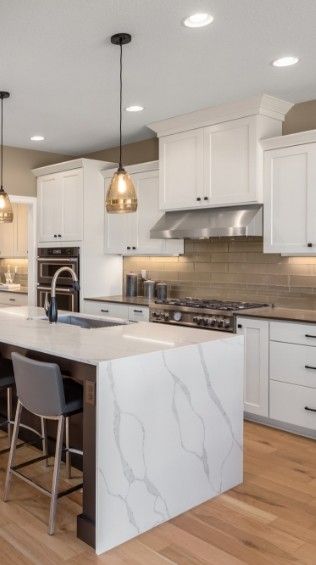Strip Light Fixtures
Types of Strip Light Fixtures


Standard
Standard strip lights feature durable steel housings for installation in warehouses, garages, and other industrial areas. Certain strip lights come with reflectors that direct the light downward for more focused applications. Most standard shop light fixtures come with a surface mount kit for installation, or you can purchase a suspension kit separately.


NSF Certified
The National Sanitation Foundation has verified these strip light fixtures meet the guidelines for placement in areas where food is handled and other areas with strict sanitation compliance requirements, such as industrial kitchens and food packaging facilities.


Stairwell Light
These lights have a slim, low profile, a curved polycarbonate lens, and a uniform beam angle. They provide increased visibility and safety, so they’re usually installed in stairwells, hallways, and schools.


Up/Down Pendant Light
These linear light fixtures are suspended from the ceiling with a wire cable and have a modern look, making them good for commercial applications. These fixtures can be linked together. Up/down pendants throw 70% of the light downward and 30% upward.


Vapor Tight Light
Vapor-tight lights are heavy-duty fixtures with a high waterproof rating, making them suitable for wet or harsh environments, such as industrial kitchens or food processing facilities. These lights can withstand chemical vapors, dust, fumes, and other substances that regular strip light fixtures cannot.


Wraparound Light
Wraparound lights feature a lens that surrounds the fixture to diffuse the light. The diffuser lens wraps around the fixture to provide uniform lighting without hotspots.


Magnetic Retrofit Kit
Retrofitted kits fit directly into the existing housing without completely replacing the fixture. The graphic provides an equivalency comparison to help you learn which magnetic retrofit kit you need based on your current housing.


Applications of Strip Light Fixtures
The various styles of strip light fixtures available make them ideal for various industrial and commercial installations. Below are a few examples of strip light applications.
-
Factories
-
Food Processing Plants
-
Gas Stations
-
Hospitals
-
Retail Stores
-
Schools
-
Warehouses
LED Ready vs. LED Integrated
LED strip light fixtures either come as LED ready or LED integrated.
-
LED-ready fixtures are compatible with LED bulbs or tubes but don’t come with them already installed. This allows for more customization because you can swap different bulbs with different CCTs and wattages to accommodate your lighting needs.
-
Integrated LED fixtures have LEDs directly installed. They are easier to install and have a longer lifetime.
Key Features of Strip Light Fixtures
Cost Savings
Various factors lead to cost savings for these strip lights. Our strip fixtures are more energy-efficient than traditional fluorescent tube lights, meaning you’ll save on energy costs. Additionally, LED strip light fixtures have a life span of around 50,000 hours, so they need replacing less often than fluorescent tube lights.
Various Lengths
Our strip light fixtures come in various lengths, typically 2, 4, or 8 feet, to accommodate your lighting needs. You can also link some LED shop light fixtures together to create long stretches of uniform light, such as warehouse aisles or assembly lines.
Selectable CCT and Wattages
Certain fixtures come with a selectable CCT and wattage option, adjusting the light's color temperature and wattage to fit your brightness and color temperature needs.
Compatible Accessories
Dimmers
Some strip light fixtures are compatible with dimmers; we offer fixtures with 0-10V, 1-10V, TRIAC, and Pulse-Width Modulation dimming. Check under the product specifications table to see dimmer compatibility.
Motion Sensors
Certain strip light fixtures are compatible with microwave motion sensors. These sensors can detect motion from people and equipment, such as forklifts. Motion sensors can track motion through shelves or other objects, making them ideal for commercial and industrial environments.


